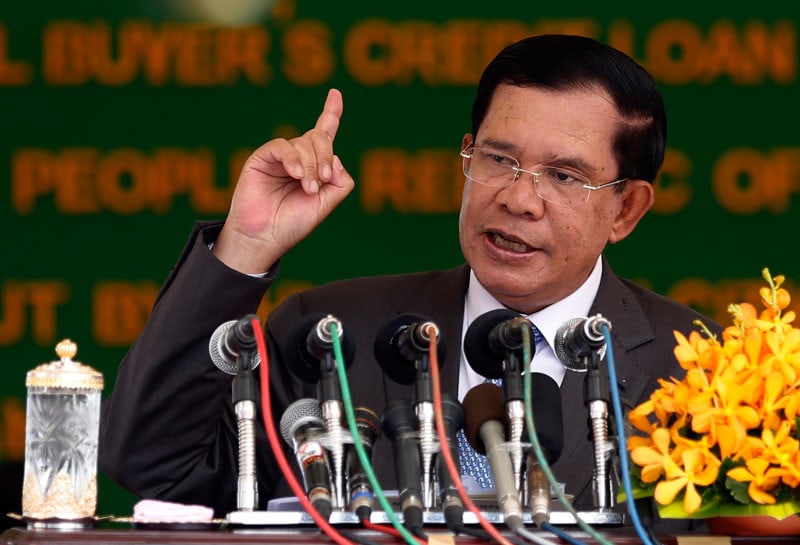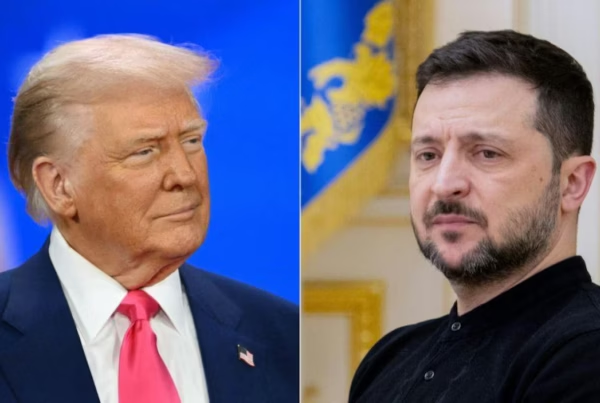By Abigail Edwards
“We will stop racing to topple foreign regimes that we know nothing about, that we shouldn’t be involved with.”
Then-President-Elect Trump’s words are fueling a revolution in Cambodia, or rather forming the flames being used to fight the revolution. Since the fall of the bloody Khmer Rouge regime in 1975, Cambodia has experimented with pluralist democracy, albeit largely under a single Prime Minister, Hun Sen, leader of the Cambodian People’s Party. Today, however, Hun Sen’s rule is faced with a growing opposition, the Cambodia National Rescue Party, a threat that he has acknowledged by unlawfully arresting the party’s leader Kem Sokha. If Kem Sokha falls, the opposition party falls, and Cambodia becomes truly a single party authoritarian state, no longer a democracy.
So where does the United States fall on this?
Kem Sokha was arrested specifically for involvement in a “United States-backed plot to overthrow the Cambodian People’s Party and its powerful leader, Prime Minister Hun Sen.” Trump’s words, which seemingly contradict this idea, are rather being used as retroactive evidence that the United States had before chosen to interfere in the governments of other countries. This notion does not stem directly from Trump’s words, and is a repeated trope for Prime Minister Hun Sen. Backed by the United States or not (and Washington says not), the Cambodia National Rescue Party, founded in 2012, has formed the first sizable opposition group to Hun Sen in his 32 year rule. In the 2013 elections, the party did better than expected, with its popular vote count nearly reaching that of the People’s Party.
It was then that the trouble began. Just about a month after the elections, Sen began one of the largest crackdowns, forcing the majority of opposition members to flee Cambodia, and imprisoning many of those remaining. It was around this time that Sokha, not then leader of the National Rescue Party, discussed his hope to build an opposition movement to win the 2018 parliamentary elections with the help of U.S. academics. The video of his words, the government argues, is evidence of treason, thus justifying his unlawful arrest without a warrant, stripping him of parliamentary immunity and his right to a fair trial. Sokha was tried by a government judge who is a prominent member of the People’s Party and close to Sen. The verdict? Guilty.
The United States’ response to the accusations has been ambiguous at best. Following the release of the 2013 video, Washington explicitly denied any collaboration with Sokha, and pulled election-related funding. All other aid, however continued, with the United States in 2016 providing $77.6 million to Cambodia. There are multiple possible explanations for this. First, the United States is the largest market for Cambodian exports, and thus sanctions would have a significant negative impact on both countries. This is likely coupled with a concern for the garment industry, staffed by hundreds of thousands of young workers who are central to the movement for change and upholding democracy, and who would be greatly disadvantaged by sanctions. Perhaps most important is the threat posed by China, which now gives Cambodia four times the aid of the United States, providing Cambodia with $5 billion in loans and investment between 2011 and 2015. China seems to feed off of Cambodia’s deteriorating democratic state, being the only country to issue a statement of support for the government crackdowns. Furthermore, with Cambodia’s economy growing in the past few years, foreign aid has decreased, and China has stepped in to fill the gap, pulling Cambodia further into its sphere of influence.
The anti-American campaign has not ended with Kem Sokha. The Cambodia Daily, a popular English language newspaper run by a family of Americans, has been shut down under seemingly unfounded charges that it owes the government $6.3 million in debt. The owners have denied this claim, and are being sued by the government for tax evasion and have been blocked from leaving Cambodia, with the not-unlikely possibility of jail time in their future. Furthermore, the family also runs a charity which builds and runs schools throughout rural Cambodia. The government has frozen the charity’s bank, leaving over 100 employees without pay, and forcing the charity to suspend operations in 90 schools.
The United States tried to counter these actions, once again with a tepid response, imposing travel restrictions on members of the Cambodian government—and possibly their families—who may be undermining democracy. Sen and the People’s Party are using this as further evidence that the United States is against them, calling it a decidedly political move, and shifting to rhetorically target the United States Embassy in Cambodia.
The Embassy responded on social media, creating #RedHerringsKH as a way of fighting what Americans would call “fake news,” and highlighting American achievements in Cambodia, such as preservation of the environment and of historical landmarks such as the famous temples.
This response was seen as even more of a direct threat to the government, prompting an open letter to the U.S Embassy in Cambodia in which a government supporter wrote, “it seems that the U.S. thinks Cambodia is the U.S.’s newest colony… what William Heidt [the United States ambassador to Cambodia] mentioned on Facebook is a political intention to ignite people’s hatred against the Royal Government of Cambodia.”
How long will this back and forth continue? It’s impossible to tell. What we do know however, is that Sen is still Prime Minister, and American interference or not, aid or no aid, he has no intentions of stepping down. Despite the temporary damage that may be caused to the livelihoods of garment workers, the United States and other countries must show they are serious about upholding democracy in Cambodia by heightening sanctions.
Other posts that may interest you:
- The Trouble with ‘Ecocide’
- Carbon dioxide removal – hit or miss?
- Local Victories for Turkish Opposition — A Sign of Hope?
- Are France and Japan a Mismatch Made in Heaven?
- A Reflection on Dark Tourism
Discover more from The Sundial Press
Subscribe to get the latest posts sent to your email.





